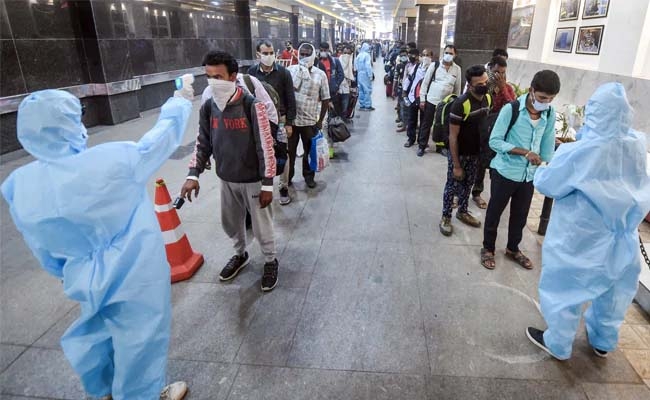
UNB, New Delhi :
With Omicron cases rising by the day, India is on the cusp of a third wave of the Covid-19 pandemic. Public health experts who have sounded out the stark warning ahead of Christmas and New Year’s eve celebrations believe that this should also serve as a wake-up call to neighbouring countries, including Bangladesh.
In the US, the rapidly spreading Omicron strain has already displaced the previously dominant Delta variant of the coronavirus, according to the Centers for Disease Control and Prevention. In Europe too, as many as 38 countries have reported Omicron cases. Not to mention that the World Health Organization has already warned that the “variant of concern” — first detected in South Africa — could have severe consequences in several countries.
“A gradual surge in Omicron cases indicates that it’s on its way to becoming the primary strain of Covid soon. We anticipate a mass outbreak in some states in February. Tightening the enforcement machinery to ensure that people follow all Covid-safety protocols is the need of the hour,” Delhi-based expert Dr Disha Rau told UNB.
India has had 3,47,58,481 Covid infections and 4,78,325 deaths since the pandemic began last year. And the country’s Omicron tally stands at 213, with the worst hit being Delhi and the western state of Maharashtra.
Alarmed by the rising Omicron cases, India’s federal government on Wednesday warned states that “the variant is three times more transmissible than the Delta” and directed them to take appropriate action to rein in its spread, including activation of a “war room” and focussing on worst-affected districts.
Soon after the directive was issued, state after state announced curbs to prevent any mass outbreak of the Omicron strain. While the Indian capital banned all Christmas and New Year gatherings, the neighbouring state of Haryana made it clear that unvaccinated people won’t be allowed to enter public places like malls, restaurants, banks and offices from January 1.
“All district magistrates shall conduct an intensive survey of the entire area falling under their jurisdiction and identify those pockets, colonies, markets and crowded places that have the potential of becoming superspreaders of coronavirus and its Omicron variant,” the Delhi government said in its order.
Another northern Indian state, Punjab, told all government employees that they won’t get their salary unless they upload their vaccination certificate on the official portal. On the other hand, the southern state of Karnataka made it mandatory for all international travellers to undergo quarantine for a week post-arrival, followed by an RT-PCR test on the eight day.
“State-wise measures are okay, but people must follow social-distancing norms and wear masks to prevent any community spread of Omicron. Unvaccinated people face a higher risk of contracting Omicron. They should avoid crowded places and get the shots at the earliest,” said MK Singh, a retired professor of the All India Institute of Medical Sciences.
Earlier this month, India’s civil aviation regulator backtracked on its decision to resume regular international flights from December 15. The government put curbs on all flights in March last year in the wake of the Covid-induced lockdown. However, it allowed domestic flights from May 2020, and the entry of all foreigners except tourists from October that year.

